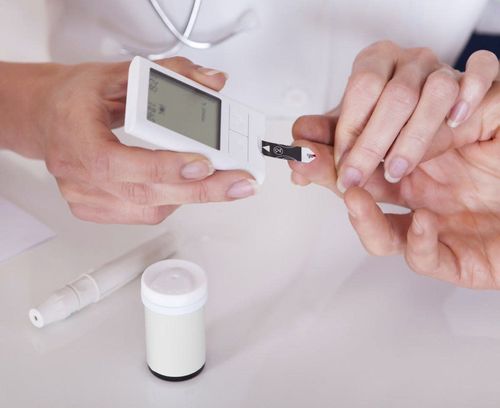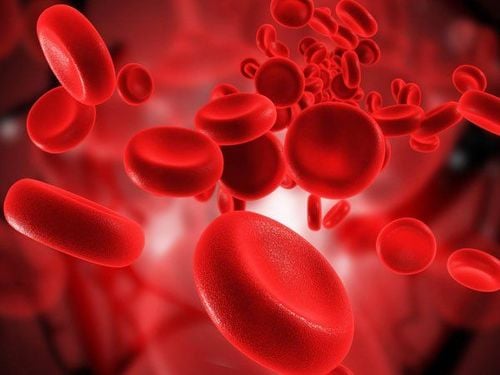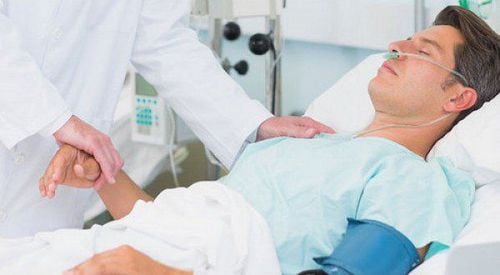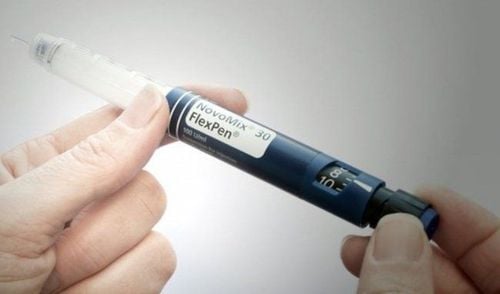This is an automatically translated article.
Posted by Master, Doctor Mai Xuan Thien - Emergency Doctor - Emergency Department - Vinmec Times City International Hospital
Ketosis in people with diabetes can be life-threatening if not treated properly and promptly. That's why, if you have diabetes or you're at risk for it, you need to know the warning signs of ketoacidosis and when to go to the hospital right away.
1. What is ketoacidosis?
Ketoacidosis is one of the dangerous complications in diabetics that occurs when the body produces a lot of ketones in the blood due to insufficient insulin.
Normally, insulin is important to help glucose - the main source of energy for muscles and other tissues - into cells. When there isn't enough insulin or the insulin isn't working properly, the body begins to use fat for energy. This process creates more ketones in the blood, which will eventually lead to ketoacidosis if left untreated.
If you have diabetes or you are at risk for diabetes, you need to know the warning signs of ketoacidosis and when to go to the hospital right away.
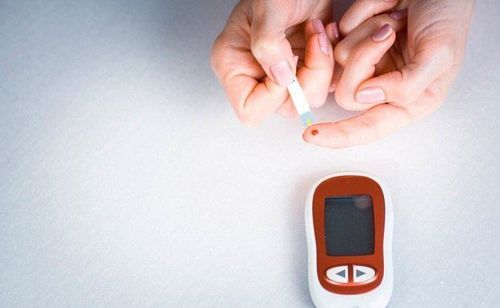
2. Symptoms of ketoacidosis
Symptoms and signs of ketoacidosis usually develop very rapidly, sometimes within 24 hours, and in some cases, these signs and symptoms may also be the first manifestation of diabetes.
Thirst a lot Urinating a lot Nausea and vomiting Abdominal pain Fatigue, muscle weakness Shortness of breath Almond-smelling breath Confusion You may be able to recognize more specific signs if you have home testing tools including
High blood sugar levels High urine ketone levels

3. When do you need to go to the hospital?
If you are being treated for diabetes, suddenly feel tired or you are sick, check your capillary blood sugar regularly. You can also buy test kits for ketones.
Go to the hospital immediately if:
Vomiting profusely without being able to eat or drink Your blood sugar is above the target range and does not respond to current home treatment The amount of ketones in your urine is moderate or high Or if you have other signs signs of ketoacidosis as described above. Remember, ketoacidosis in people with diabetes can be life-threatening if not treated properly and promptly.
4. Causes of ketoacidosis
Sugar is the main source of energy for cells such as muscles and other tissues. Normally, insulin helps sugar get into cells to perform metabolic tasks for energy. If there isn't enough insulin or the insulin isn't working properly, the body won't be able to use sugar for energy. Immediately releases hormones to break down fat for energy, this process creates more ketones in the blood. When blood ketones are too much, they will appear in the urine.
Diabetic ketoacidosis is usually caused by:
Having diabetes: An infection or other medical condition can cause the body to produce more hormones like adrenaline or cortisol. These hormones have the opposite effect of insulin on sugar metabolism – In some cases, it will cause ketoacidosis in people with diabetes. Pneumonia and urinary tract infections are common causes. Inappropriate insulin therapy: Missing or using it incorrectly can lead to an inadequate supply of insulin and cause ketoacidosis. Some other predisposing factors include
Trauma (physical, mental) Myocardial infarction Addiction to alcohol or drugs, especially cocaine Use of drugs that affect sugar metabolism such as corticosteroids and some diuretics Weakness Risk factors for ketoacidosis:
Type 1 diabetes Frequent forgetting of medication Ketone acidosis is less common in people with type 2 diabetes. In some cases, ketoacidosis can be the first sign of diabetes.
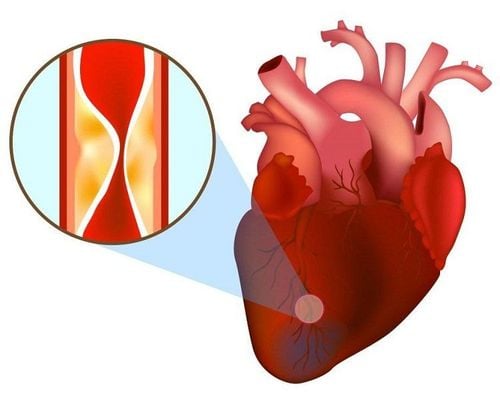
5. Complications of ketoacidosis
Diabetic ketoacidosis if not treated adequately (fluid and insulin) can cause dangerous complications, or complications from treatment can also occur.
Possible complications of treatment include:
Hypoglycemia: Insulin helps sugar enter the cells, causing blood sugar levels to drop. If it drops too quickly, it will cause hypoglycemia. Hypokalemia: Fluids and insulin used to treat ketoacidosis can lower blood potassium levels, which affects the heart, muscles, and nerves. Cerebral edema: Adjusting blood sugar too quickly can lead to brain swelling. . This complication is common in children, especially newly diagnosed diabetes. If left untreated, diabetic ketoacidosis can lead to coma and death.
6. Preventing Ketoacidosis
To prevent complications of ketoacidosis as well as other complications of diabetes, you need to
Adhere to treatment: Follow the right diet, physical activity and use medicine according to the instructions of a specialist doctor. faculty is very important. Monitoring blood sugar levels: With the development of technology, it is not difficult to have a device to monitor blood sugar at home, you should monitor regularly to evaluate the effectiveness of treatment, and should monitor regularly. more when you are suffering from a certain disease or under stress Adjust your insulin dose if necessary: You need to discuss with your specialist based on your daily blood sugar monitoring, to adjust the insulin dose you need to discuss about your diet, exercise regimen, medical conditions, or other factors before your doctor decides to adjust your dose to reach your goal. Test for urinary ketones: This test kit is still quite new in Vietnam, but you can find out in some foreign markets. This test is very useful when you feel tired or have another illness, you should check your ketones for mild, moderate or high and should go to the hospital right away if your ketones are moderate or high. Be prepared for all situations: When you are diagnosed with diabetes, your doctor will always advise you on emergencies such as signs and treatment when hypoglycemia. If you suspect ketoacidosis, your blood sugar is high, you test for high ketones, so go to the emergency department immediately Ketosis is very dangerous but you should stay calm and keep the goal of treatment according to the doctor's instructions. , discuss with them when you need support or have any unusual developments
At Vinmec International General Hospital, we always deploy a screening package for diabetes and dyslipidemia to help detect pre-diabetes early. diabetes, accurately classifying diabetes type, developing a nutritional regimen, monitoring to minimize the risks and complications caused by diabetes.
Please dial HOTLINE for more information or register for an appointment HERE. Download MyVinmec app to make appointments faster and to manage your bookings easily.
Reference source: Mayoclinic





